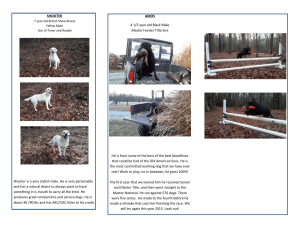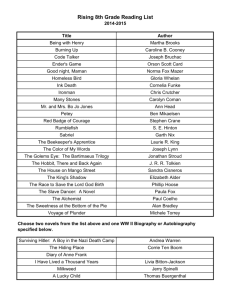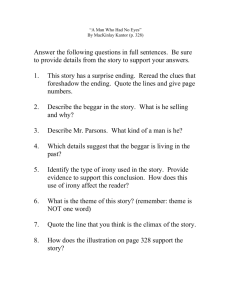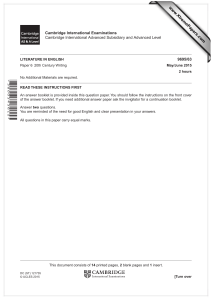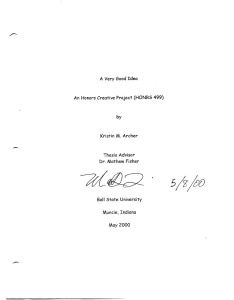Other Pin Close Reading_2014-15
advertisement
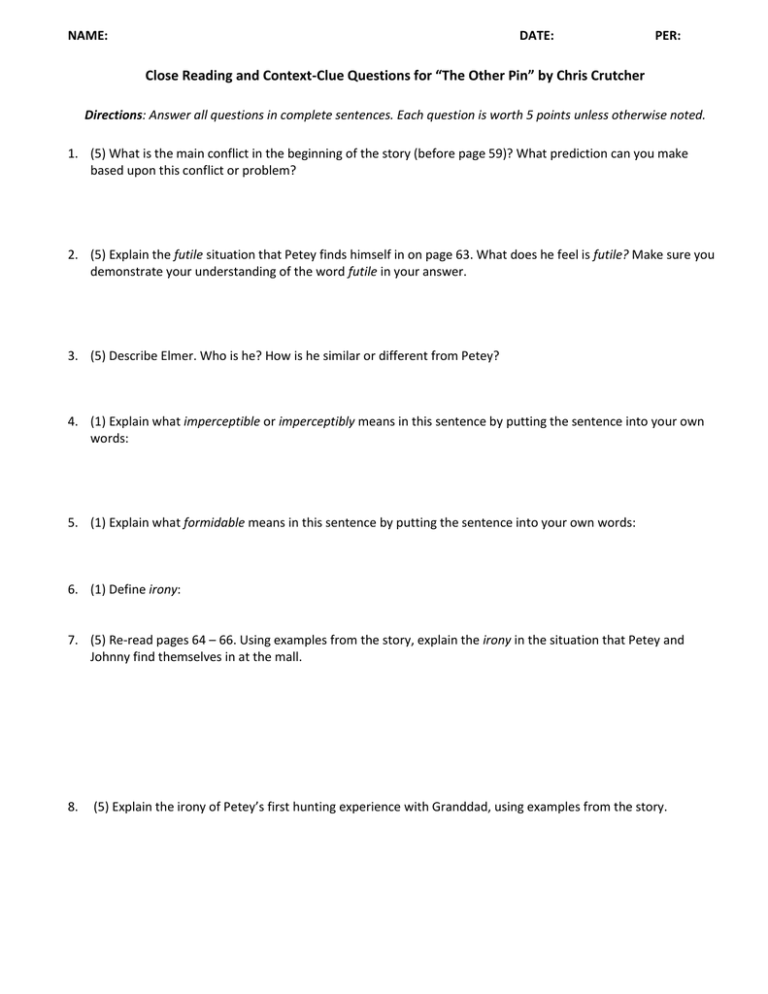
NAME: DATE: PER: Close Reading and Context-Clue Questions for “The Other Pin” by Chris Crutcher Directions: Answer all questions in complete sentences. Each question is worth 5 points unless otherwise noted. 1. (5) What is the main conflict in the beginning of the story (before page 59)? What prediction can you make based upon this conflict or problem? 2. (5) Explain the futile situation that Petey finds himself in on page 63. What does he feel is futile? Make sure you demonstrate your understanding of the word futile in your answer. 3. (5) Describe Elmer. Who is he? How is he similar or different from Petey? 4. (1) Explain what imperceptible or imperceptibly means in this sentence by putting the sentence into your own words: 5. (1) Explain what formidable means in this sentence by putting the sentence into your own words: 6. (1) Define irony: 7. (5) Re-read pages 64 – 66. Using examples from the story, explain the irony in the situation that Petey and Johnny find themselves in at the mall. 8. (5) Explain the irony of Petey’s first hunting experience with Granddad, using examples from the story. 9. (2) Reread page 68-69, starting with the sentence that begins “I got a rule…” What is the lesson that Granddad is trying to teach Petey when they talk about Chris Byers? Why does Granddad not just say what he wants Petey to do? 10. (5) How does the conflict of the story change by the end of this scene? Explain how the problem becomes even worse: 11. (5) Re-read the last section of the story, from the bottom of page 81 through page 82. What is the irony in this scene? Use examples from the story to explain why it’s ironic. 12. (1) Look at the last paragraph before the text break which indicates a scene change on page 76. What’s the best way to define derail as it’s used here? a) come off the rails b) send off course c) stopping by changing or redirecting d) none of the aside 13. (2) Looking at the end of the match on page 81, use examples from the story to explain why the title “The Other Pin” is appropriate for this story. 14. (1) Define the term theme: 15. (2) In your opinion, what is the universal theme or lesson in this story? Using details from the story, explain why you believe this is the theme. 16. (3) What are some of your favorite metaphors throughout the story. Give at least three. What do they mean?
